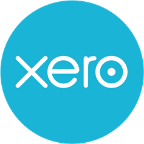The year 2020 left brands and marketers struggling to re-evaluate their tactics, tossing out ideas that might have been brilliant just a few months ago, and throwing all of their creativity into creating new, concrete interactions with prospects and consumers. Live events have faded away, and virtual conferences have risen to take their place. In-store activations were cancelled and all efforts shifted to focus on online services. Despite the devastating effects on many types of media, especially print, it was a historic year for podcasting — and this upward trend shows no signs of abating. But, in 2021, do you need a podcast as part of your marketing strategy?
Podcasts are here to stay
Podcasting will begin to grow as a mass entertainment channel in 2021, with more viewers and advertisers than ever before. Podcasting has provided brand marketers the ability to captivate their audience through engaging, high-quality content in the form of conversations, filling the gap created by the lack of in-person events. In turn, these conversations can drive an entire content marketing strategy, spilling over into blog posts, e-books, social media posts, sales emails, and more.
People are longing for connection, understanding and discussion, and for refreshingly ‘slow’ content compared to frenetic feeds.
Yes, it’s an important opportunity for marketers. But it needs to be done right, by first making sure that what you want to say adds value. Assessing the audience’s desires and expectations is also essential in delivering the type of podcast content they want. To determine if podcasts are appropriate for your marketing campaign, consider both their advantages and disadvantages.
Do podcasts suit your strategy or not? What to consider:
- Valuable content is key
Right now, there is an abundance of material to choose from. Can you break through the clutter and add value? People will not come unless you have anything in return for their time: A steady flow of lively, informative, and engaging content. A disguised sales pitch would not deceive listeners. They want to learn something new and have their thinking challenged.
If you’re confident that your content ticks all the boxes, and you’ve already been generating and sharing this content via blogs, social media posts, mailers and videos, then podcasting is an easy win. You can repurpose that content and present it in a completely different way, even enriching it using guests with expertise and experience.
Successful podcasts make the content about the listeners — to be helpful to them, to inspire new ways of thinking, or to present solutions to their problems.
- Resources
It takes time, money, energy, discipline, and connections to create a listener-worthy programme. Is this the best way to use certain elements to get the most profit, value, and return on your investment? Will it be done differently with a different approach?
Compared to advertising, broadcasting, video and animations, podcasts are relatively cheap and easy to set up. They do require some amount of planning and preparation but don’t require that many people to produce. To create a polished and convincing presentation, you will need more than Zoom and a webcam; for example, you will need a good-quality microphone, a secure conference platform, and a comfortable set-up.
Dedication is a must… You have to make the time for this project. Podcasts need to be produced on a regular basis in order to be successful.
- Presenters and guests
It’s one thing to have interesting content, but podcasts often need engaging, experienced presenters to bring it to your audience. To make podcasts work, you need relatable presenters with charm, a sense of humour, and, most importantly, a firm grasp on your brand and desired outcomes.
Not all podcasts have guests, but those that do automatically multiply their audience size. You have both your community and your guests’ communities interested in what you’re saying. Use the same rules for choosing guests as you would for populating an in-person panel discussion. Your vendors, in-house experts and successful customers are also excellent candidates.
- Brand awareness and loyalty
A well-executed podcast or podcast series as part of a marketing campaign in 2021 helps expand your audience, bringing more customers to your company and even getting them to buy your goods or services. Suddenly, you have access to major publishing platforms with millions of users, like iTunes or Spotify, for example — giving you a much larger audience than you’d have if you stuck to videos and articles alone.
Connecting with your audience via podcasts helps build loyalty and dedication amongst your existing customers, too, lending credibility, trust and affinity to your offering.
People want to listen and learn more when they hear knowledgeable and honest voices, so they will follow you on social media, visit your website, watch your videos, read your posts, and otherwise interact with you.
- Podcasting suits work-from-home
More time spent at home means more time to listen to podcasts. Many companies have long-term plans to expand the remote or flexible work climate, and brands are well-positioned to capitalise on this stay-at-home lifestyle by podcasting.
Podcast content has the luxury of being the only type of content that doesn’t require any visual investment from your audience. People can listen and stay connected to your brand whenever is most convenient for them.
- Ready to press “record?”
If you’ve weighed the pros and cons and are confident in your ability to have a unique listening experience, now is the time to update your marketing plan to include this successful approach in 2021 — a year that’s set to be another watershed moment in podcast history.
Call FBS Digital today to find out more about our marketing services: 0204 526 5195 or e-mail us at hello@finchleybusiness.co.uk






